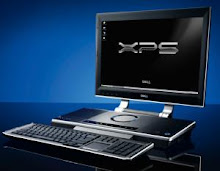 The primary difference between Linux and many other popular contemporary operating systems is that the Linux kernel and other components are free and open source software. Linux is not the only such operating system, although it is by far the most widely used. Some free and open source software licenses are based on the principle of copyleft, a kind of reciprocity: any work derived from a copyleft piece of software must also be copyleft itself. The most common free software license, the GNU GPL, is a form of copyleft, and is used for the Linux kernel and many of the components from the GNU project.
The primary difference between Linux and many other popular contemporary operating systems is that the Linux kernel and other components are free and open source software. Linux is not the only such operating system, although it is by far the most widely used. Some free and open source software licenses are based on the principle of copyleft, a kind of reciprocity: any work derived from a copyleft piece of software must also be copyleft itself. The most common free software license, the GNU GPL, is a form of copyleft, and is used for the Linux kernel and many of the components from the GNU project.Linux based distributions are intended by developers for interoperability with other operating systems and established computing standards. Linux systems adhere to POSIX,[33] SUS,[34] ISO and ANSI standards where possible, although to date only one Linux distribution has been POSIX.1 certified, Linux-FT.[35]
Free software projects, although developed in a collaborative fashion, are often produced independently of each other. The fact that the software licenses explicitly permit redistribution, however, provides a basis for larger scale projects that collect the software produced by stand-alone projects and make it available all at once in the form of a Linux distribution.
A Linux distribution, commonly called a "distro", is a project that manages a remote collection of system software and application software packages available for download and installation through a network connection. This allows the user to adapt the operating system to his/her specific needs. Distributions are maintained by individuals, loose-knit teams, volunteer organizations, and commercial entities. A distribution can be installed using a CD that contains distribution-specific software for initial system installation and configuration. A package manager such as Synaptic allows later package upgrades and installs. A distribution is responsible for the default configuration of the installed Linux kernel, general system security, and more generally integration of the different software packages into a coherent whole.
Community
A distribution is largely driven by its developer and user communities. Some vendors develop and fund their distributions on a volunteer basis, Debian being a well-known example. Others maintain a community version of their commercial distributions, as Red Hat does with Fedora.
In many cities and regions, local associations known as Linux Users Groups (LUGs) seek to promote their preferred distribution and by extension free software. They hold meetings and provide free demonstrations, training, technical support, and operating system installation to new users. Many Internet communities also provide support to Linux users and developers. Most distributions and free software / open source projects have IRC chatrooms or newsgroups. Online forums are another means for support, with notable examples being LinuxQuestions.org and the Gentoo forums. Linux distributions host mailing lists; commonly there will be a specific topic such as usage or development for a given list.
There are several technology websites with a Linux focus. Print magazines on Linux often include cover disks including software or even complete Linux distributions.[36][37]
Although Linux distributions are generally available without charge, several large corporations sell, support, and contribute to the development of the components of the system and of free software. These include Dell, IBM, HP, Oracle, Sun Microsystems, Novell, Nokia. A number of corporations, notably Red Hat, have built their entire business around Linux distributions.
The free software licenses, on which the various software packages of a distribution built on the Linux kernel are based, explicitly accommodate and encourage commercialization; the relationship between a Linux distribution as a whole and individual vendors may be seen as symbiotic. One common business model of commercial suppliers is charging for support, especially for business users. A number of companies also offer a specialized business version of their distribution, which adds proprietary support packages and tools to administer higher numbers of installations or to simplify administrative tasks. Another business model is to give away the software in order to sell hardware.

No comments:
Post a Comment